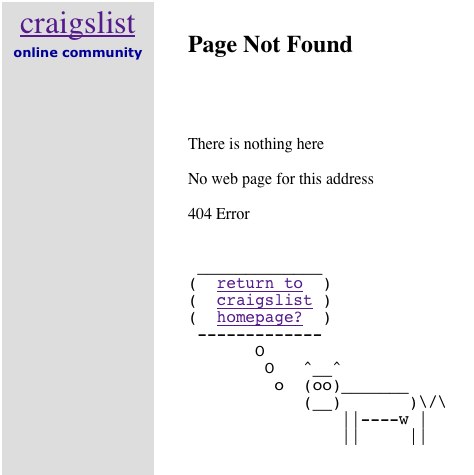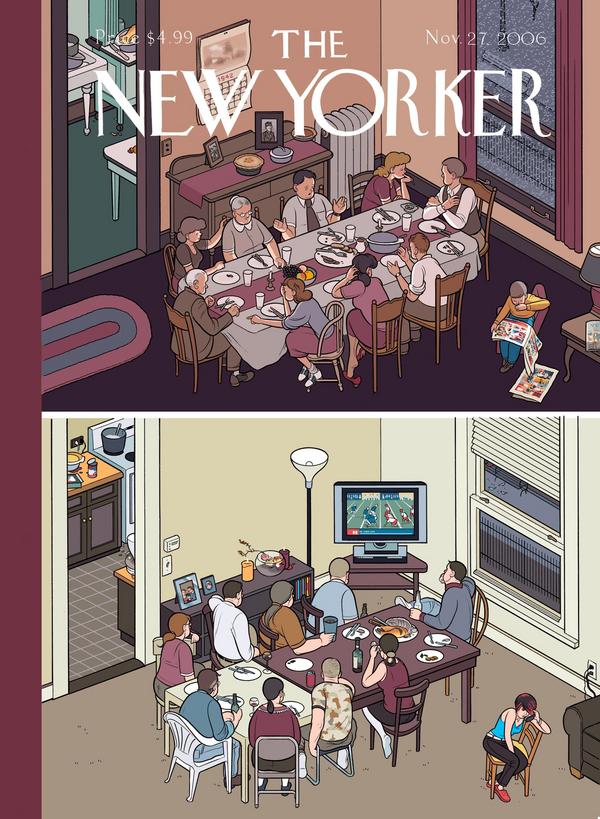John Cleese, of Monty Python fame, explains the difference between Soccer and (American) Football:
Very funny!
Thanks to several people who have pointed this video out lately!
John Cleese, of Monty Python fame, explains the difference between Soccer and (American) Football:
Very funny!
Thanks to several people who have pointed this video out lately!
I just watched the pilot episode of Pioneer One, the "first ever made-for-torrent" TV series, and I liked it a lot!
The story is intriguing:
An object in the sky spreads radiation over North America. Fearing terrorism, U.S. Homeland Security agents are dispatched to investigate and contain the damage. What they discover will have implications for the entire world.
The pilot episode has been filmed on a budget of a mere 6000 dollars (all of it funded by private donations), and for that, the idea has been very well executed. I suggest you all see it, as the video is freely and legally available through VODO. Pioneer One is licensed under a Creative Commons Attribution Noncommercial Sharealike license.
What I find very impressive about the show is that unlike traditional producers, they embrace rather than demonize P2P file sharing. Therefore, the makers of Pioneer One have the chance to show that grassroots film-making (or rather, TV-series-making) that is successful beyond a tiny scale is possible by actively engaging the Internet community (for both funding and distribution) rather than using the Internet as a simple, tightly controlled broadcasting medium as if it was a glorified TV set.
When the article on Pioneer One faced (and fenced off) a deletion request due to alleged irrelevance on Wikipedia, I wrote the following in the deletion discussion:
Keep. Not for it being a low-funds TV series, as it is not exceptional in that respect, but for its attempt at being successful through Torrent distribution. [...] The main reason for its notability is that we see a huge effort on the side of traditional media distribution groups against P2P networking as a concept. They essentially argue that P2P is [not] tightly controllable and therefore it must be objectionable. Making an active effort to legally distribute media content via P2P is much more a political statement for the legitimacy of P2P as a cultural phenomenon than it is a way to keep distribution cost low. Compare this to other attempts at making a (mini-) series popular on the Internet (Dr. Horrible, for example) that while being free-as-in-beer (initially) did not use P2P technology (or any free-as-in-speech distribution channel), and you'll see how radically different Pioneer One is in that respect. [...]
Sure, it is not the first free-to-torrent project. But it's the first free-to-torrent series that might actually become successful. And it is a way for the filesharing community to show what it is really about: Free speech, not free beer.
Here's another addition to the happy family of fail pets from across the Internet: The online merchant Zappos is well-known for executing an ordinary shopping experience (for shoes) extraordinarily well on the Web. They have RSS feeds, Twitter and Facebook integration and -- of course -- a "fail pet":
I wonder if Dash the dog knows what the Zappos people all blame on him there?
By the way: Not to be outdone, I just replaced the picture on my own 404 page with a photo of my dog out of the recent dog content collection.
It's the 30th anniversary of the arcade classic Pac-Man, one of my all-time favorite computer games.
Apparently, Google agrees, so they celebrate it with a playable (that's right) Google logo: Today, Google is most certainly distracting more people from work than Facebook.

This is awesome. Make sure to try it out before the end of the day!
(If you missed it, I am confident it'll show up in the Google's doodle gallery soon.)
Update: Tobias and JP point out the Google's Pacman logo now has a permanent residence on the web. Great!
I know, I know. Technically, it's only a fail pet if a web site uses a nice little creature on an error page announcing unplanned down-time of the service.
That makes this ASCII cow from Craigslist not really a fail pet, but I find it a nice enough idea to blog it anyway:

This little fellow shows up on the 404 error page (i.e., any page that does not exist on craigslist.org, such as this one). While it is just taken from a well-known UNIX command, I like it a lot because it goes very well with the simplicity of craigslist itself, which is intentionally so much different than all the shiny "Web 2.0" applications.
Thanks for the hint, Jabba!
Another addition to my ever-growing fail pet collection. Today: Neatorama, a website collecting everything, well, neat.
Their "fail pet" is an octopus, the "Neatokraken":
Fail whale, make room: You've got company.
I can't decide if United Airlines is just promoting the Mile High Club on its twitter page, or if it's just an ordinary spammer hijacking their account:
(and no, you shouldn't actually enter that URL into your browser. It's boring spammy stuff.)
via @cbarrett and countless others on twitter.
Here's another, beautiful specimen in my little collection of what I have called "fail pets" for awhile now: Github.
I wonder if their pink fail-unicorn is somehow related to the similarly colored (but less angry) Django Pony. A distant relative, maybe -- especially since the "original" Django pony was, in fact, a unicorn.
(Before someone is urged to remind me, yes, to my knowledge, github is written in ruby, not Python/Django.)
While stumbling across the net, I found this, The New Yorker's Thanksgiving cover from 2006:

The illustration feels a little sad, though I am not sure what I am sadder about: That they can watch football and I don't ;) Or that digital distractions take away from the traditional family gathering called Thanksgiving.
(via YayEveryDay)
In response to the birthdays I mentioned in my last post, Google has two topical logos today.
The American site, google.com, honors Sesame Street:

... while google.de remembers the fall of the Berlin Wall.

Quite the contrast.